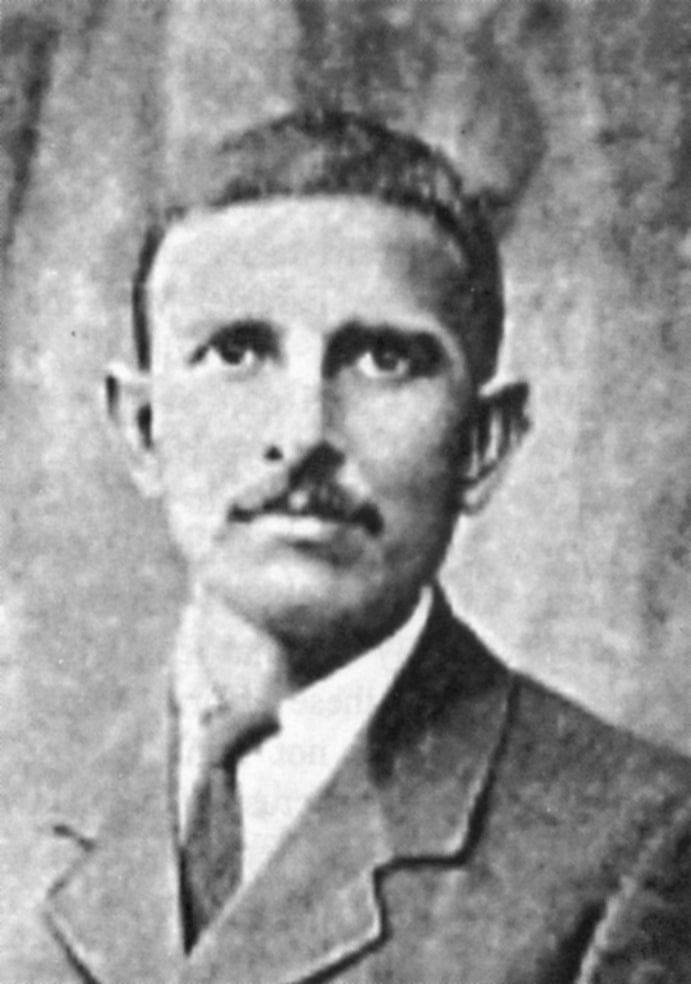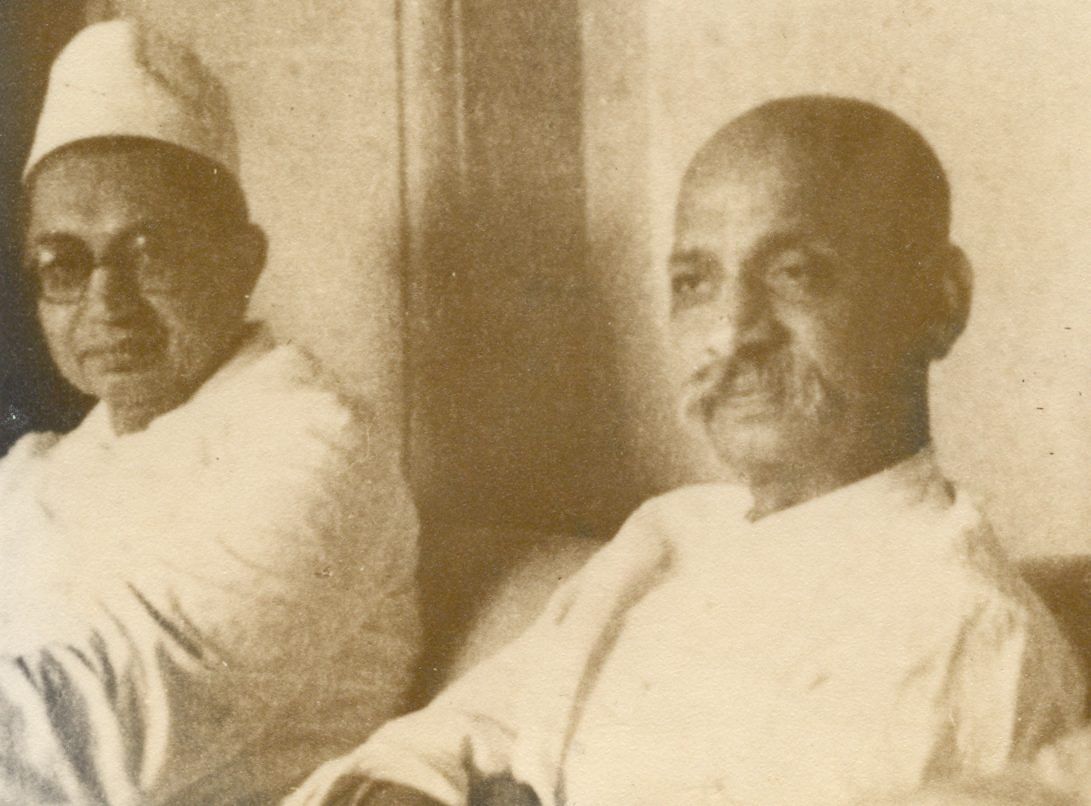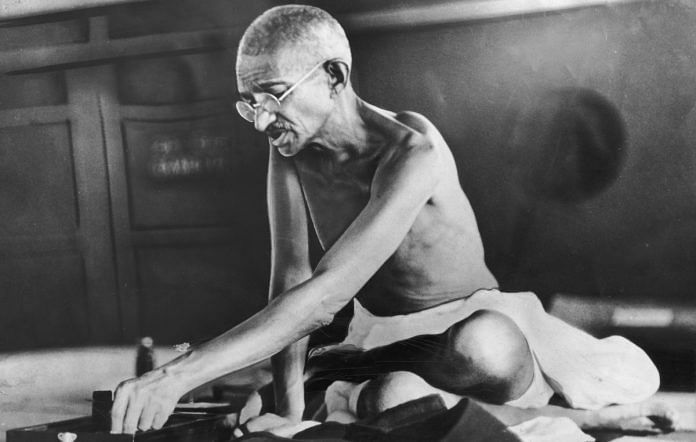Maganlal Gandhi’s role is documented in ashram’s history, but Mathuradas’s contribution is locked in out-of-print books in Gujarati.
When Maganlal Gandhi died, Mahatma Gandhi wrote ‘I am more widowed than she (Maganlal’s wife)’.
Maganlal Gandhi (1883-1928), son of Gandhi’s cousin Khushalchand Gandhi, was senior most among his close comrades from Gujarat. He stayed with Gandhi at the Phoenix Ashram in South Africa and was in charge of Gandhi’s Sabarmati Ashram in Gujarat. He was ‘soul of the ashram’.
Feared as a strict disciplinarian, Maganlal was criticised for being too harsh. But Gandhi trusted him and said that it was only Maganlal with whom he felt oneness (Abhed). Maganlal was the one ‘whom I (he) had singled out as heir to my all’.
Also read: You don’t know Gandhi if you don’t know about his 3 Gujarati comrades
Like his brothers, Maganlal went to South Africa ‘in the hope of making a bit of fortune’, as Gandhi noted later. But when Gandhi’s tracks changed, he too adopted a simple life and joined his experiments and ashram life in 1904. He learnt everything from farming to running a newspaper. He was editing the Gujarati section of Indian Opinion, the paper Gandhi published during his South Africa days.
When Gandhi found the word ‘passive resistance’ insufficient to convey his novel method of non-violent fight, Maganlal wrote a letter to Gandhi suggesting a Gujarati word ‘Sadagraha’. Gandhi was convinced and tweaked the word into ‘Satyagraha’. Maganlal even adopted the vow of Brahmacharya (celibacy) and fully devoted himself to the service of the people.

When Gandhi decided to return to India, via London, the responsibility of bringing ashramites was delegated to Maganlal, many of whom stayed briefly at places like Kangri Gurukul and Santiniketan before joining Gandhi’s ashram in Ahmedabad.
Maganlal was fiercely against the inclusion of a Dalit family in the ashram. He almost quit the ashram on this issue, but Gandhi managed to convince him to stay back. He took over the management of the ashram because Gandhi was travelling extensively. He took up spinning and experimented with different designs and techniques, and even wrote a book called Vanaat Shashtra or The Science of Weaving. During the floods of Kheda, Maganlal joined Sardar Patel and was active on the ground doing relief work.
When he died in Patna after brief illness, Gandhi made an exception and broke his vow of observing silence on Mondays to console Maganlal’s family.
Also read: Aruna Asaf Ali, a fiercely independent freedom fighter who defied Mahatma Gandhi
Gandhi was very precise in the compliments he gave. He addressed Mathuradas Trikamji, a much younger family member, as a ‘guard of my morality’ in a letter. When Gandhi was thinking about ‘spiritual marriage’ with Sarala Devi Chaudharani, three people prevented him from pursuing the idea. One of them was Mathuradas, writes Rajmohan Gandhi.
Mathuradas Trikamji (1894-1951) was grandson of Gandhi’s half-sister Muliben (son of Muliben’s daughter Anandben). Mathuradas was awed by Gandhi’s work in South Africa. He met Gandhi in 1915 and tried to understand his philosophy by writing letters and asking questions. He became one of the early compilers and publishers of Gandhi’s thoughts in India when he brought out a collection of his articles and lectures. He even translated some of them from English and Marathi. The compilation was named Mahatma Gandhi Ni Vichar Shrushti. This was published in 1918, before Navjivan’s existence. The book had a Sanskrit slogan with a Gandhian twist: Shatham Prati Satyam (शठम् प्रति सत्यम). The original saying was Shatham Prati Shaathyam (शठम् प्रति शाठ्यम्). Mathuradas highlighted it with the explanation that it was Gandhi’s favourite one.

Mathuradas had a mind of his own. When he was elected to the Bombay municipality, Gandhi suggested that he attend the meeting of the Sheriff. On hearing this, Mathuradas requested Gandhi not to advice in such small matters because there were high chances of error in judgement. Gandhi agreed and wrote back, saying it is erroneous and horrible to get ‘fatwas’ from him all the time in each and every matter.
Mathuradas requested Gandhi to leave the Congress in 1924 when serious differences came up between Gandhi and the old guard. He reiterated the suggestion again in 1934, saying it would be good for him and the Congress. Later, when Gandhi was observing his 21-day fast in 1943, he told jail authorities to inform him about the “health of Mathuradas, ex-mayor of Bombay, who is grandson of my long deceased sister”. At that time, Mathurdas was suffering from tuberculosis.
Also read: Mahatma Gandhi’s little-known love affair with a married, progressive woman in Lahore
Among Gandhi’s family members who followed him, Maganlal’s role is secured as part of the official history of the ashram. But Mathuradas’s contribution is locked in a few out-of-print books in Gujarati, including his reminiscences of Gandhi titled Bapu Ni Prasadi (1948).
Urvish Kothari is a senior columnist and writer in Ahmedabad.
(Gandhi’s Gujarati comrades: On the occasion of 150th birth anniversary of Mahatma Gandhi, ThePrint brings you a three-part series on his forgotten colleagues from Gujarat. Click here to read part one, and part three)



